Race Face SixC Crankset
(discontinued)
| Where To Buy | |||
|---|---|---|---|
Free shipping on orders over $50 (continental U.S. only).
International shipping available. Some exclusions apply. |
Free shipping on orders over $50 (continental U.S. only).
International shipping available. Some exclusions apply. $11.99
|
||
Free shipping on orders over $50 (continental U.S. only).
International shipping available. Some exclusions apply. |
Free shipping on orders over $50 (continental U.S. only).
International shipping available. Some exclusions apply. $429.99
|
||
Race Face Next R Crank Arms
$429.99
|
|||
by Lee Trumpore
It wasn't long ago that carbon crank arms were only found on the bikes of the gram-counting XC crowd who had money to burn. But just as carbon frames are becoming commonplace under the world's most abusive DH racers, it's fast becoming the material of choice for the rest of their components as well. Race Face is the latest major brand to throw their hat into the DH/All Mountain/Enduro crank ring, and at 540 grams the redesigned SixC Cinch cranks are still light enough for the XC crowd, but now stiff and sturdy enough to put up with the abuse of DH racing.

Race Face SixC Cinch Crank Highlights
- Completely redesigned for 2015.
- The crank arms are completely hollow with all unnecessary material being removed from the centre core - no internal aluminum spine. Hand laid up and manufactured in Canada with US sourced carbon.
- Industry standard 30mm spline interface CNC machined from a newly commercialized aluminum super alloy that is 20% stronger than 7050 alloy (the alloy commonly used in this application).
- Removable spider option of the Cinch interface system offers the ability to convert between existing chainring standards while remaining flexible to future developments.
- The interchangeable spindle option of the Cinch Interface system allows you to use the same crankset with 68/73mm and 83mm frames.
- Intended use: AM/Enduro/DH
- SIZE: 165, 170, 175mm
- BB: BSA30 ( 68/73 & 83 ), BB92/BB107 press-fit, PF30/PF30-83
- WEIGHT:
- 540g ( 36T DM, 165mm, 83mm spindle, w/o BB )
- 580g ( 36T on spider, 165mm, 83mm spindle, w/o BB )
- 695g ( 24/36/Bash, 175mm, 68/73mm spindle, w/o BB )
- RING CONFIGURATION:
- Direct mount N/W Single Ring ( 26/28/30/32/34/36 )
- 2x with Bash - 22/36/Bash, 24/36/bash
- 2x no bash - 22/36, 24/36, 24/38
- N/W Single Ring/Bash
- N/W Single Ring
- COLOR:Matte Carbon
- MSRP:
- Sixc Cinch Cranks with Direct Mount N/W Single ring ( no BB ) - $499.99
- Sixc Cinch Crank 2x ( no BB ) - $599.99
- Sixc Cinch Crankarms ( no rings/BB ) - $459.99
- Cinch 30 BB - $59.99
Initial Impressions
At $500 my first impression is that these cranks certainly aren't cheap. But when you consider that they are made in Canada with US sourced carbon, and that the finish quality is simply outstanding, the high price tag comes a bit more into focus. Out of the box the SixC Cinch cranks look amazing with a clean, raw carbon layup and flawless aluminum machine work. The large diameter crank arms seem like they're just asking to be stomped on while the direct mount narrow-wide ring gives the whole package a nice minimalistic feel.

If it seems like I'm getting a bit carried away with aesthetics it's because these cranks simply look the business, and in a market saturated with expensive component choice that's no small detail. Beyond appearances what is immediately most apparent is the weight, specifically the lack of it. With a 30 tooth ring mine tipped the scales at a bit over 500 grams, or about 1/3 of a pound less than the high end aluminum cranks they replaced.

On the Trail
I had no issues with installation (aside from the BB sleeve which I'll touch on later) and had everything out of the box and onto the bike in under 15 minutes. The pre-greased bolt and spline interfaces and the thread lock on the BB threads were appreciated attention to detail, and really something that should be expected on any component at this price point.

Under foot the SixC cranks feel much like their appearance suggests. There is no perceptible flex, just stiff responsive power transfer through the pedals. Though it may be just in my head, I'm convinced that I can notice how worn my seasons old shoes have become far more on these cranks than when I get on my other trail bike.

Passing the parking lot sprint test is one thing, but the true measure of any crankset, especially a carbon one, is how well it performs out on the trail. After a month of regular riding I've not needed to adjust or service the SixC cranks once. A quick check before writing the review and the BB cups, crank bolt, and spider are as tight as they were on the first ride. I've had issues in the past with other cranks that use a similar threaded bearing preload design, specifically with it slowly rotating loose and allowing the crank arms to develop a bit of play. Race Face opted to machine their preload collar out of aluminum and use a pinch bolt to hold it in place (as opposed to the spring-loaded plastic of similar designs found elsewhere), and this has created a system much less prone to coming loose. Another small detail worth mentioning are the holes drilled into the collar that allow it to be rotated with the end of a small allen key. Anyone who's tried to rotate a preload collar after a few months of grime has built up on the tight threads will appreciate this addition.

I don't have any prior experience with the Race Face narrow-wide chainring so I can't offer any long-term assessment. However, I've yet to drop a chain and even after a few run-ins with rocks and one off trail excursion into a tree it's still running straight and true.
Things That Could Be Improved
The fit, finish, performance, and appearance of the Race Face SixC Cinch crankset have all been nothing short of fantastic. Tolerances are tight, small details are accounted for, and setup was a breeze.... well almost. It may have just been my frame, but the internal plastic sleeve/seal between the two BB cups put noticeable pressure on the spindle once everything was tightened down. Unthreading the cups a bit solved the problem, but I'm not sure running a slightly loosened BB is wise long term solution. I probably could have trimmed a few mm off the edges but instead I opted to remove the sleeve completely (which I usually do anyway, in this case for the sake of testing I installed everything according to the instructions). It's not something I consider to be a big deal, and I actually find it easier to clean and service my BB bearings without the plastic sleeves installed. It's something to take note of when installing these cranks on your own bike so you don't mistake the resistance for overly preloaded bearings or a misaligned spindle. There's also a very good chance this was an isolated issue.
Long Term Durability
Cranks are among the most abused components on our bikes, and often the only one to make direct contact with the ground on a regular basis. So far the included guards have done a nice job fending off blows from rocks and other trail obstacles leaving the crank arms themselves looking relatively unscathed. The not uncommon problems of bolts, spiders, and BB's coming loose over time have not presented themselves at all with the SixC and given the fairly exacting tolerances I don't foresee these being problematic in the future either. As for the carbon question, that comes down to your own comfort level with the material but given its current success in other DH applications I certainly don't have any concerns.
What's The Bottom Line?
Light, strong, stiff, and handmade in Canada the Race Face SixC cranks certainly lived up to expectations on my all-mountain bike. Though still not exactly cheap, with the quality finish, attention to detail, light weight and performance on offer here you can be sure you are getting what you pay for. Real long-term durability is the true test of any cranks, but so far the SixC's have been rock solid and free of any real issues. If tough carbon cranks are on your upgrade short-list, these surely need to be towards the top.
For more information, head on over to www.raceface.com.
About The Reviewer
Lee Trumpore has been riding bikes for more than 20 years on just about every material and technology the bike industry has come up with. In more than a decade of professional DH racing, Lee won a Collegiate National Championship and was a mainstay at major North American races as well as occasionally snagging a last page result in the World Cup series. Testing prototype components and suspension setups was common during his racing days. He has a smooth, light style on the bike even while holding it wide open. An East Coast native, his favorite trails are fast and flowing technical descents with as many corners as possible and just enough moisture to keep things interesting. Nowadays, rather than racing the clock, he'd rather enjoy a rad descent after a hard pedal to the top. A closet nerd with a Master's degree in education policy Lee currently lives in Taipei, Taiwan where he splits his time teaching mathematics to the next generation of computer geniuses and behind the lens as a photo mercenary for Vital MTB and other industry clients.
1 member reviews

When looking for high-end aftermarket components or piecing together a new build for your burly DH or freeride bike, the words “Race Face SixC” will most likely come up in recommendations from fellow riders and those in the industry. Race Face designated the SixC brand for their highest performing, ultra-burley carbon components and consists of handlebars, cranksets, and seatposts. The SixC crankset first appeared in 2012 but was updated for direct mount capabilities in 2015. Since then, they have become the pinnacle of strength to weight ratios for all cranksets on the market. I’ve equipped the past several bikes with the SixC cranksets and with just over a year and a half of experience with them, here are my impressions.
Out of the Box:
One thing Race Face does very well is present their components in carefully thought out and appealing packaging. The first thing you will notice when opening up your SixC crankset is just that, awesome packaging. Once opened, you’ll see the driveside SixC crankarm displayed in all of it’s awe and wonder as if you were Indiana Jones himself obtaining the Golden Idol in the beginning scene of Raiders of The Lost Ark. Okay, kinda farfetched but you get what I’m saying, the SixC crankset is well displayed.

Once picking the crankset up, that is when you really begin to realize how nice they are. The craftsmanship is top notch as you would expect being one of the most expensive cranksets on the market today. Placing 3M protective film (helicopter tape) over the SixC logo keeps the appearance as fresh as the day you first got them. As far as I know, Race Face is the only ones to offer such protection on their cranks. Also, if they get marred up, just give Race Face a call and they will send you new 3M film at a reasonable price or you could cut your own and they will look like-new again.

The weight of the SixC crankset is just as impressive if not more impressive than their quality. My 165mm length / 83mm spindle /36 tooth ring combination came in at just 540 grams which is over ½ lb lighter than Shimano’s highest end DH crankset: Saint. In terms of weight, only the new e*thirteen LG1R cranks can compare but the $40 MSPR price difference which is more around $100+ if looking at on-line deals makes the SixC crankset a much better value.

Installation:
Putting your SixC crankset is very straight forward with the help of their easy to follow installation diagram. The key to making this go smoothly is making sure you purchased the correct style of Cinch bottom bracket and have access to the special Race Face Cinch bottom bracket tool. With my first SixC crankset, I made the mistake of not having the bottom bracket tool specific for this crankset and had to wait several days to acquire one before I could get on my bike.
I experienced no issues with installing the BSA Cinch bottom bracket but did almost strip it out when removing it during an overhaul service. The bottom bracket tool interface of the Cinch is slightly smaller than others out there and can easily be stripped out if you’re not careful.

The SixC crankset is equipped with an adjustable locking ring that tightens up the crankset to the bottom bracket. This was once made of metal but has since been replaced by plastic. I’ve noticed that the plastic ring has a tendency to move and loosen up quite a bit more than the metal one (even when the pinch bolt had been fully tightened.) Going to the plastic ring was probably a cost effective step on Race Face’s side but wish they would have kept using the metal one. Also, if you don’t have a set of Allen keys machined with good tolerance or have a history of overtightening bolts be careful not to strip the head of the locking bolt as it is easy to do. It’s a hyper-small size and doesn’t take much to get the head completely rounded. This happened to myself but with the luck of a Dremel tool I was able loosen it with a flat head screw driver. This adjustment worked so nicely I ended up reusing the stripped out bolt.
On The Trail:
Weighing in at only 540 grams, the SixC crankset is unbelievably stiff and supportive. I feel the stiffness is a combination of chunky, yet hollowed out carbon arms and a 30mm spindle made from “commercialized aluminum 'super alloy' that is 20% stronger than 7050 alloy” as stated on Race Face’s website.
With the geometry and intended use of freeride and DH bikes, its common for rocks and other hard objects to smack against the bottom bracket and downtube of the frame. This is true for crank arms as well. Although I haven’t had massive impacts from kicked up rocks, I have had a few that left me checking the undercarriage of my rig. With that said, the signs of impact are quite minimal and only cosmetic. I have been quite impressed with how well they have deflected rocks.

One thing I would say is a MUST-HAVE are carbon crank boots. These things are only make from simple plastic but are a game changer when seeking top of the line protection for your $400+ crankset. I remember smashing my Sram XO DH crankarms on a local trail and the shame of looking down and seeing crushed carbon is the absolute worst. If your carbon cranks don’t come with these boots, make sure to get a set before you go out railing. You’ll be happy you did. Also, Race Face makes these booties in pretty much every color you could think of so customizing your ride hasn’t ever been easier.
Bottom Line:
The Race Face SixC crankset was pretty impressive back in 2012 but with the Cinch spindle update in 2015, have become a major contender for the best crankset on the market. The quality and craftsmanship is exactly what you’d expect for a hyper-expensive carbon crankset. Pulling the SixC cranks out of the packaging, you may feel some interpersonal conflict putting them on your beat-up DH bike because they look so good. Installation is pretty straight forward but be careful not to strip out the locking ring’s bolt as it is very small. The SixC cranks are one of the lightest cranks on the market with the strength and stiffness even the hardest of riders want. Found quite easily for under $400 new, the SixC cranks aren’t exactly the cheapest carbon cranks but they are by far one of the best values on the market. If you are looking to lighten up your current set up and don’t want to sacrifice strength and performance, the Race Face SixC crankset are certainly an excellent option to add to your cart.
0 comments
Post a reply to: Race Face SixC Cinch Crank
Specifications
Cinch removable spiders: 2x 104/64mm BCD (Boost option available), 2x 120/80mm BCD, 1x 104mm BCD
BMX Race Option: BMX-specific spindle and spider, 104mm BCD
| Where To Buy | |||
|---|---|---|---|
Free shipping on orders over $50 (continental U.S. only).
International shipping available. Some exclusions apply. |
Free shipping on orders over $50 (continental U.S. only).
International shipping available. Some exclusions apply. $11.99
|
||
Free shipping on orders over $50 (continental U.S. only).
International shipping available. Some exclusions apply. |
Free shipping on orders over $50 (continental U.S. only).
International shipping available. Some exclusions apply. $429.99
|
||
Race Face Next R Crank Arms
$429.99
|
|||













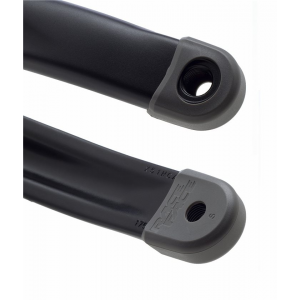
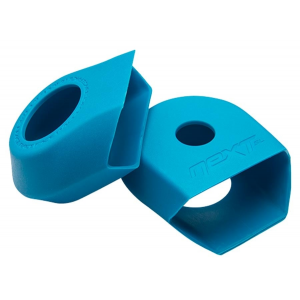
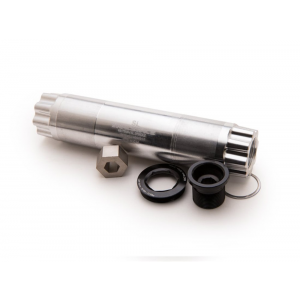
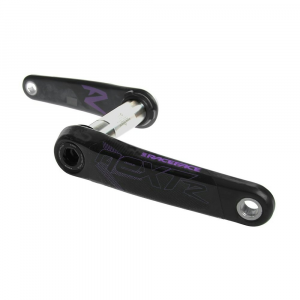
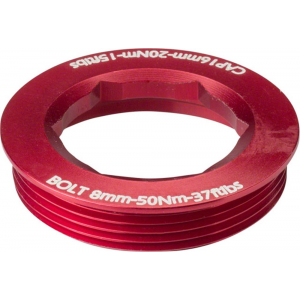

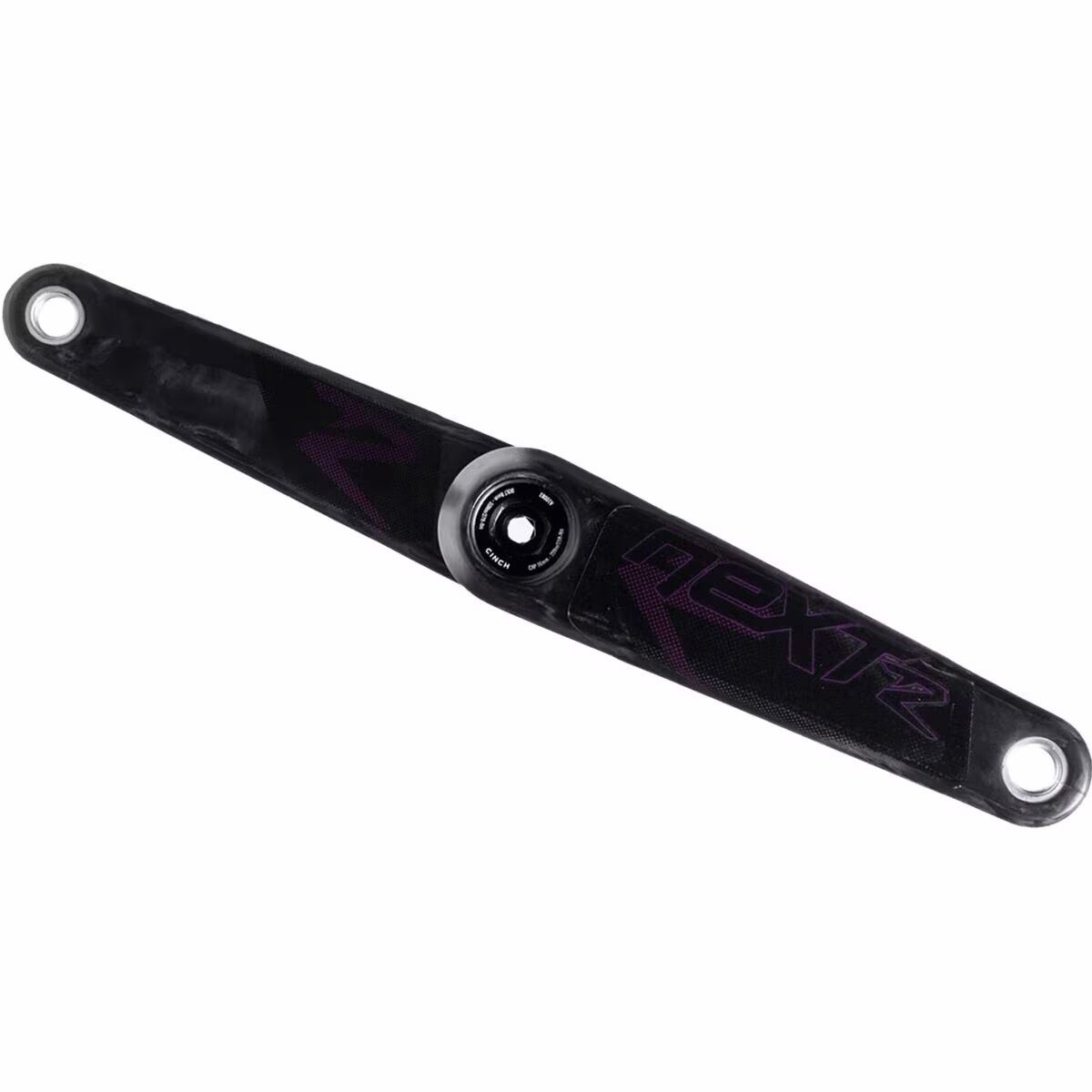

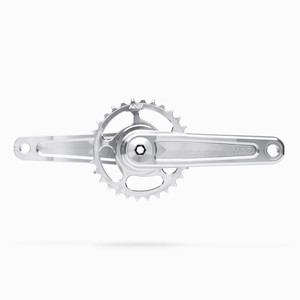
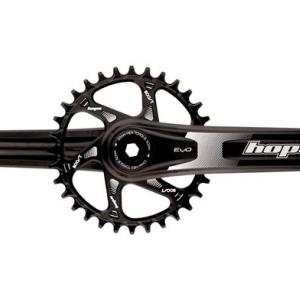
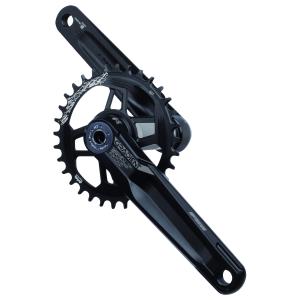
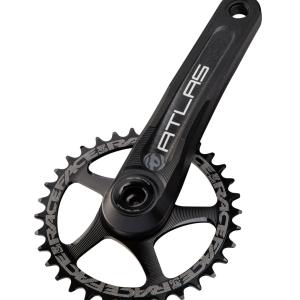

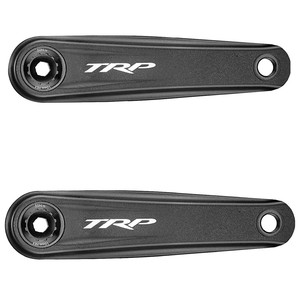
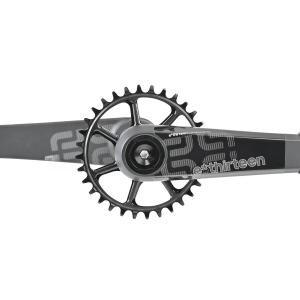










1 comments
Post a reply to: Tested: Race Face SixC Cinch Crank